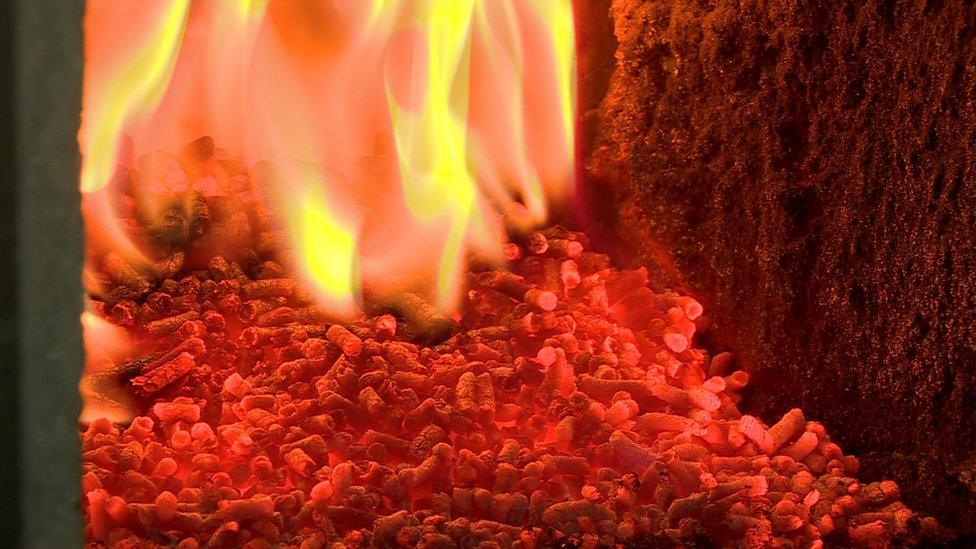RHI Inquiry: Five moments you might have missed
- Published
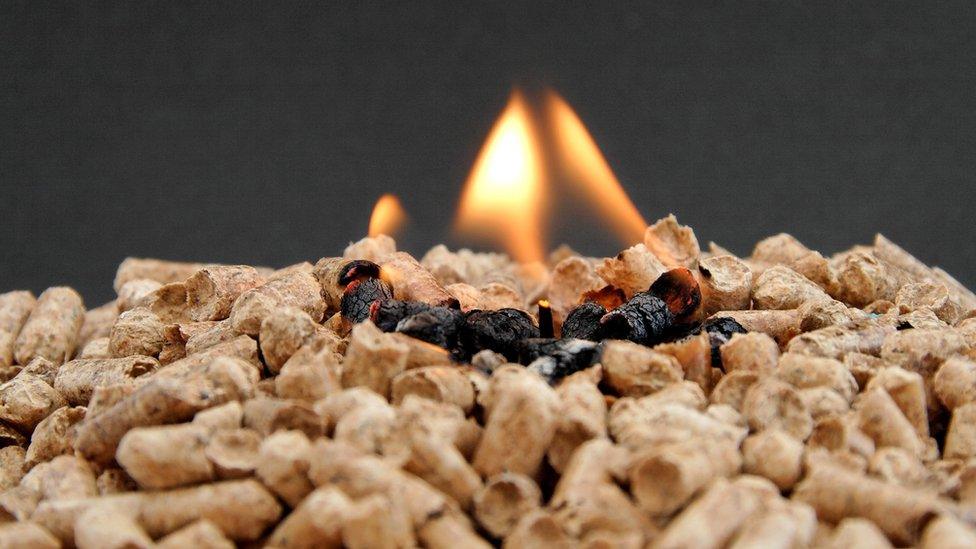
The scheme encouraged businesses to switch from fossil fuels to renewable heat
The public inquiry into Northern Ireland's flawed green energy scheme hit the 100 days milestone on Friday.
It is examining what went wrong with the Renewable Heat Incentive (RHI) scheme.
This week saw huge revelations about the scheme, which was set up in 2012 to encourage uptake of eco-friendly heat systems - but overgenerous subsidies left NI taxpayers with a £490m bill.
BBC News NI has picked out five key moments you might have missed.

1. 'NI renewable sector dead due to RHI' - Alan Hegan
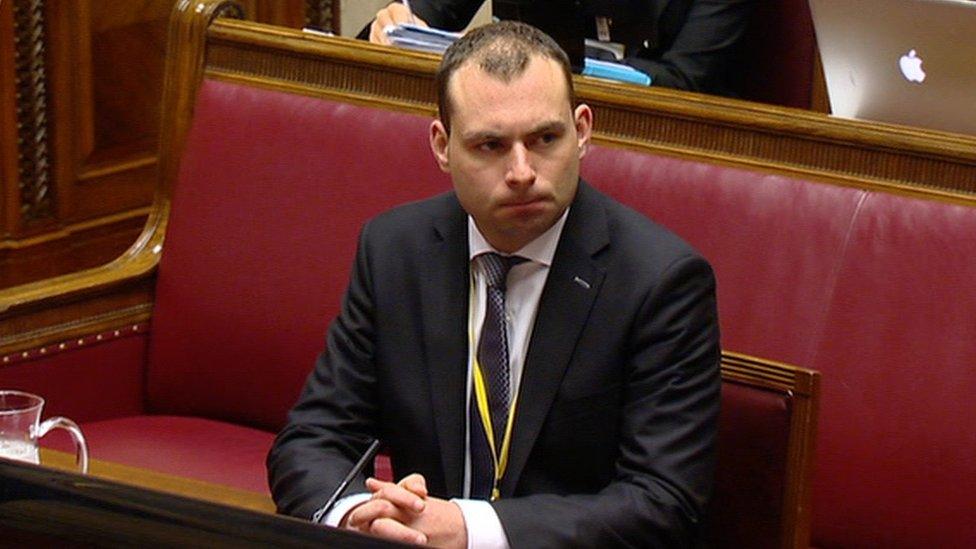
Alan Hegan told the RHI inquiry he voiced frustration that the scheme was not designed properly
After last week's explosive DUP-dominated hearings, proceedings started more slowly on Tuesday as a biomass boiler installer took to the witness chair.
But Alan Hegan did not hold back from giving the panel his thoughts on what he saw as the main problems with RHI.
He said he had raised concerns with Stormont officials about how it could be manipulated for profit, but that "nobody cared".
He also said due to the fallout surrounding the flawed green scheme, the renewable heat industry in Northern Ireland is now effectively "dead".
"With the amount of bad press that has surrounded biomass and perhaps renewables in general, it's arguable what level of incentive would now be required to bring someone into it," he said.
The business community's confidence in the economy department had been "absolutely eroded", he added.
"It's totally shambolic, that's my view, the industry is destroyed," Mr Hegan said.

2. Man wanted by inquiry 'can't be contacted' - David Scoffield
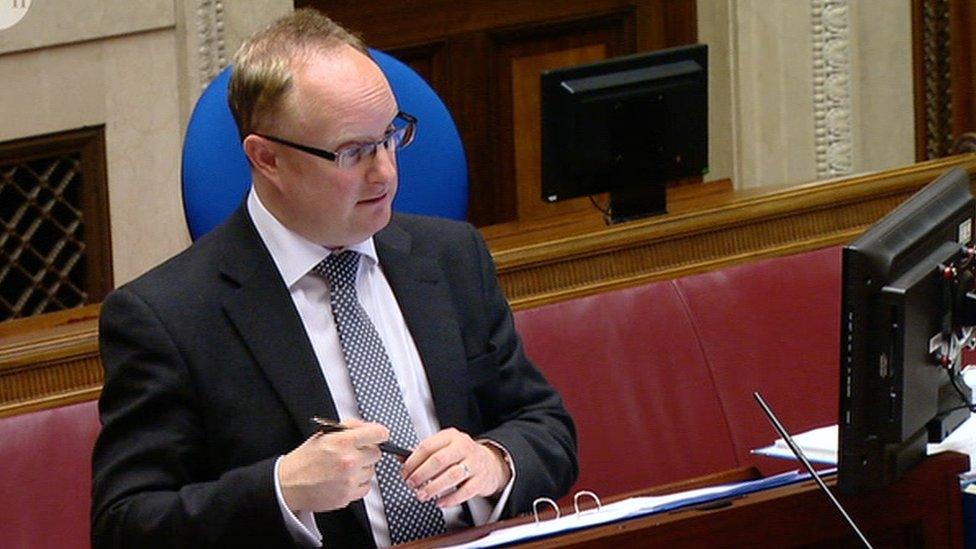
Counsel David Scoffield said the inquiry has been unable to reach a potential witness
On Tuesday afternoon, the panel heard that a witness the inquiry wants to hear from cannot be reached.
Fergal Hegarty is business development manager at Alternative Heat, a company that supplied RHI boilers to installers.
He also co-ordinated efforts by companies to which Alternative Heat supplied, to push for a delay in the introduction of cost controls in autumn 2015.
His boss, Connel McMullan, told the inquiry Mr Hegarty is on a round-the world-trip and is currently in Australia.
He was asked whether the trip was linked to the inquiry's interest in taking evidence from him - Mr McMullan said he did not believe so.
He said while Mr Hegarty's job was being held open for him, Alternative Heat was not paying him wages or expenses while he was away.
Mr Scoffield said the panel was interested in speaking to Mr Hegarty, but has, so far, been unable to contact him to even get a written statement.

3. Did energy group 'mislead charity body?' - Sir Patrick Coghlin
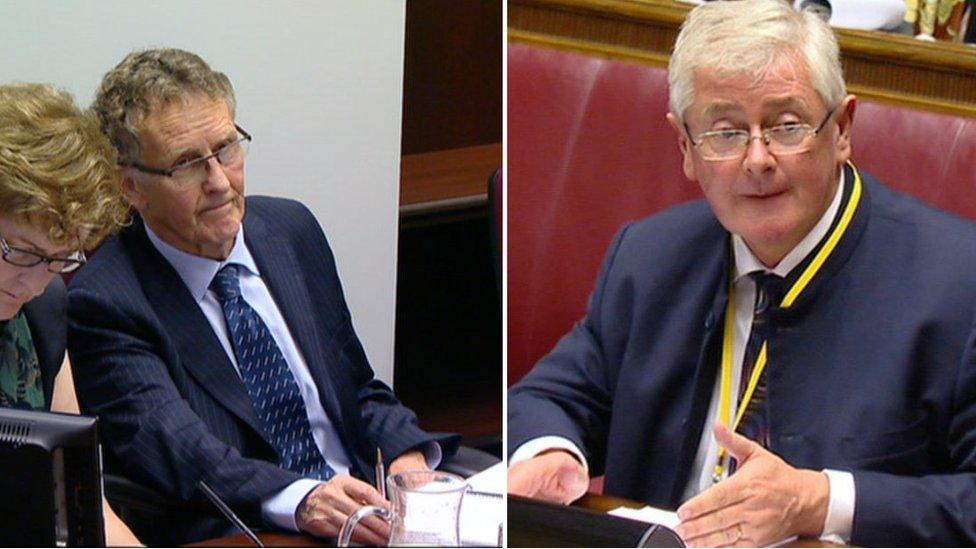
Sir Patrick Coghlin said the "inescapable inference" was that Michael Doran (right) and Action Renewables may have misled the Charity Commission
Wednesday saw a significant admission from the boss of an organisation that described itself as Northern Ireland's leading authority on renewables: it knew from the outset that the RHI scheme was flawed.
Michael Doran is chief executive of Action Renewables, a charity which promotes energy efficiency.
He told the inquiry his group had known as early as 2012 that there would be no cost-control mechanism to prevent RHI being exploited for profit, but did not flag it in case it delayed the start of the scheme.
That directly contradicts what he told a Charity Commission investigation, claiming he only learned of the problems in 2016. The commission closed the case last January after it met the group's trustees.
In light of that, inquiry chair Sir Patrick Coghlin remarked that the "inescapable inference" was that Action Renewables had misled the Charity Commission.
Following Wednesday's evidence, the Charity Commission has now said it's "carefully considering" the claims:, and that it's an offence to knowingly or recklessly supply false of misleading information.
Mr Doran has denied accusations Action Renewables was involved in a cover-up.

4. Firms 'told more about RHI' than MLAs - Patsy McGlone
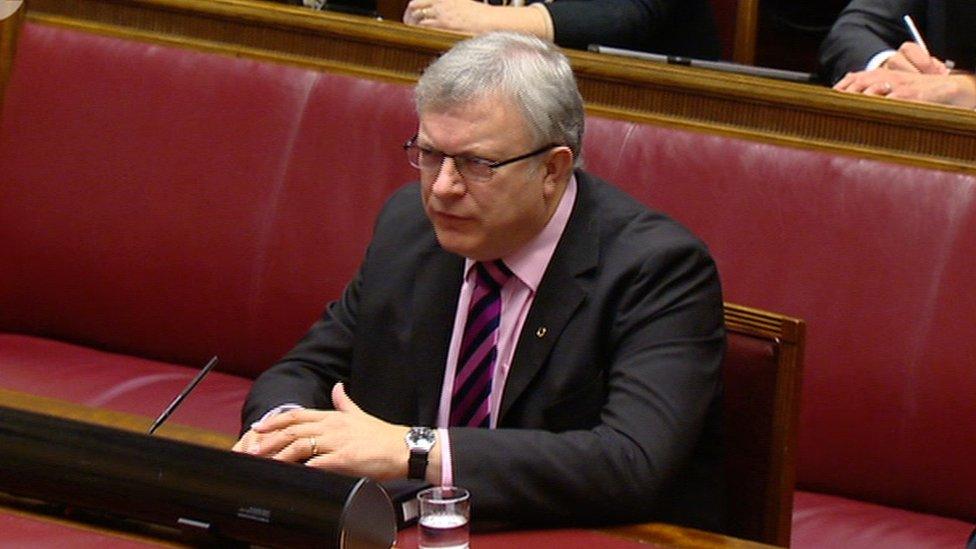
Patsy McGlone chaired Stormont's enterprise scrutiny committee
The former chair of Stormont's enterprise committee, SDLP assembly member Patsy McGlone, appeared at the inquiry on Thursday to give more evidence.
He was in charge of the committee that had responsibility for scrutinising the enterprise department, that ran the RHI scheme.
Mr McGlone said committee members were kept in the dark by officials about huge problems with the scheme, and they might have been better informed had they held their meetings "at Moy Park".
That refers to evidence already heard by the inquiry that the poultry giant - whose suppliers made up the majority of RHI claimants - was getting regular updates from departmental officials about impending changes.
He said civil servants were never forthcoming about the problems in the scheme, even as they were drafting emergency changes to it in autumn 2015.
However, he conceded that with hindsight, the committee could have done "much more" in holding the department to account.

5. Email 'supports DUP cost controls claim' - Sir Patrick Coghlin
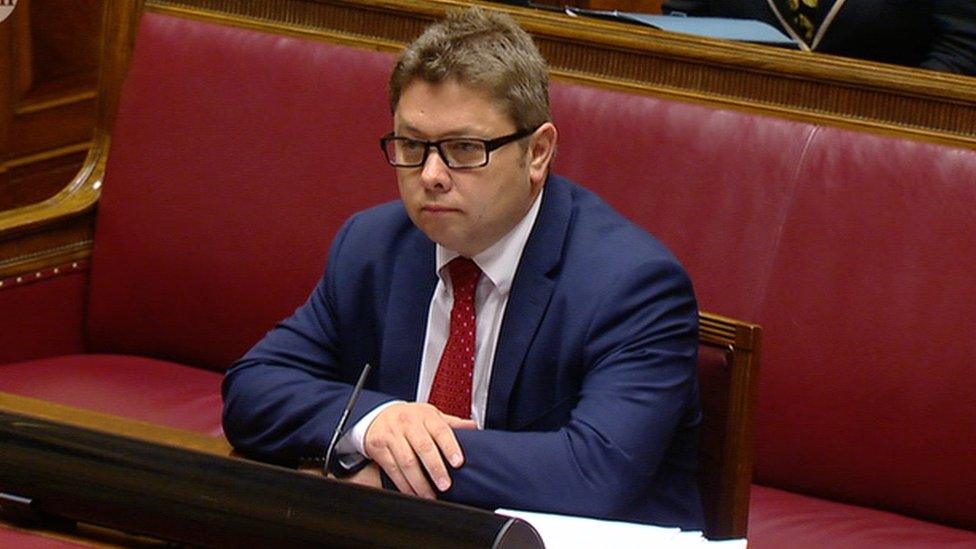
Timothy Johnston is a former special adviser to three first ministers: Ian Paisley, Peter Robinson and Arlene Foster
By all accounts Thursday was a mammoth day of evidence, as the inquiry revealed details of a new email supplied by an ex-DUP adviser that appears to show someone in the party did not want cost controls introduced.
It came to light as the DUP's chief executive, Timothy Johnston, returned to finish his evidence.
The email had been provided by ex-DUP adviser Timothy Cairns on Wednesday, who previously claimed he was instructed by Mr Johnston that RHI cost controls would not be introduced, and to find an alternative.
In the August 2015 email, Mr Cairns told Mr Johnston, who at that time was advising the first minister, that if Northern Ireland wished to "deviate" from the RHI scheme in Great Britain - which had cost controls built in so that it could not be exploited - it would need the enterprise minister to step in.
Sir Patrick said: "The clear suggestion is that somebody, somewhere was saying don't put tariffs in."
Mr Johnston said he had forgotten about the email until it was mentioned, and said he did not believe it showed he had been involved in discussions about RHI that summer.
He has always denied allegations he was involved in any way in seeking to delay or reduce cost controls.

The inquiry will start day 101 on Tuesday with an official from the finance department, followed by the return of former top civil servant at the enterprise department, Andrew McCormick, on Wednesday.
You can keep up-to-date with the latest from the RHI inquiry on BBC News NI's live page.
- Published5 September 2018
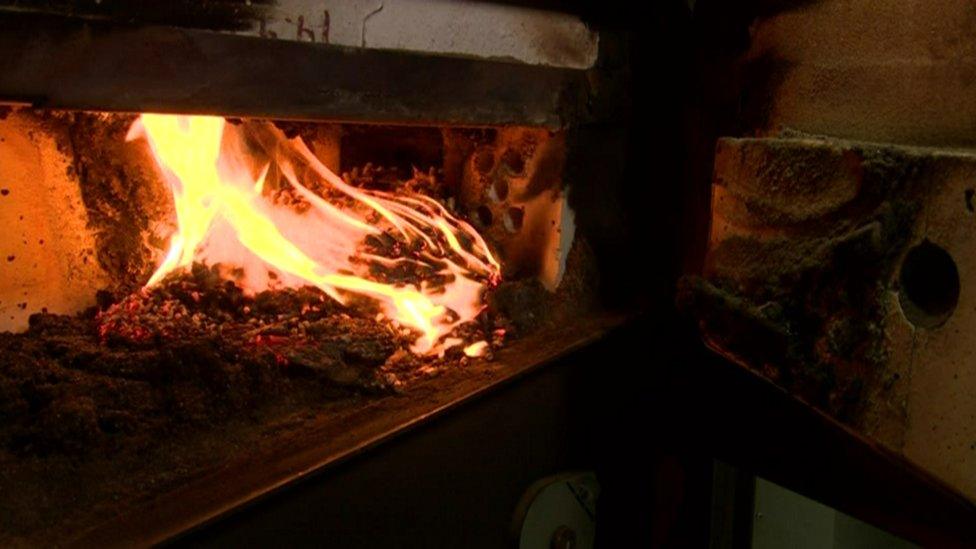
- Published7 November 2017

- Published23 October 2019

- Published13 March 2020
